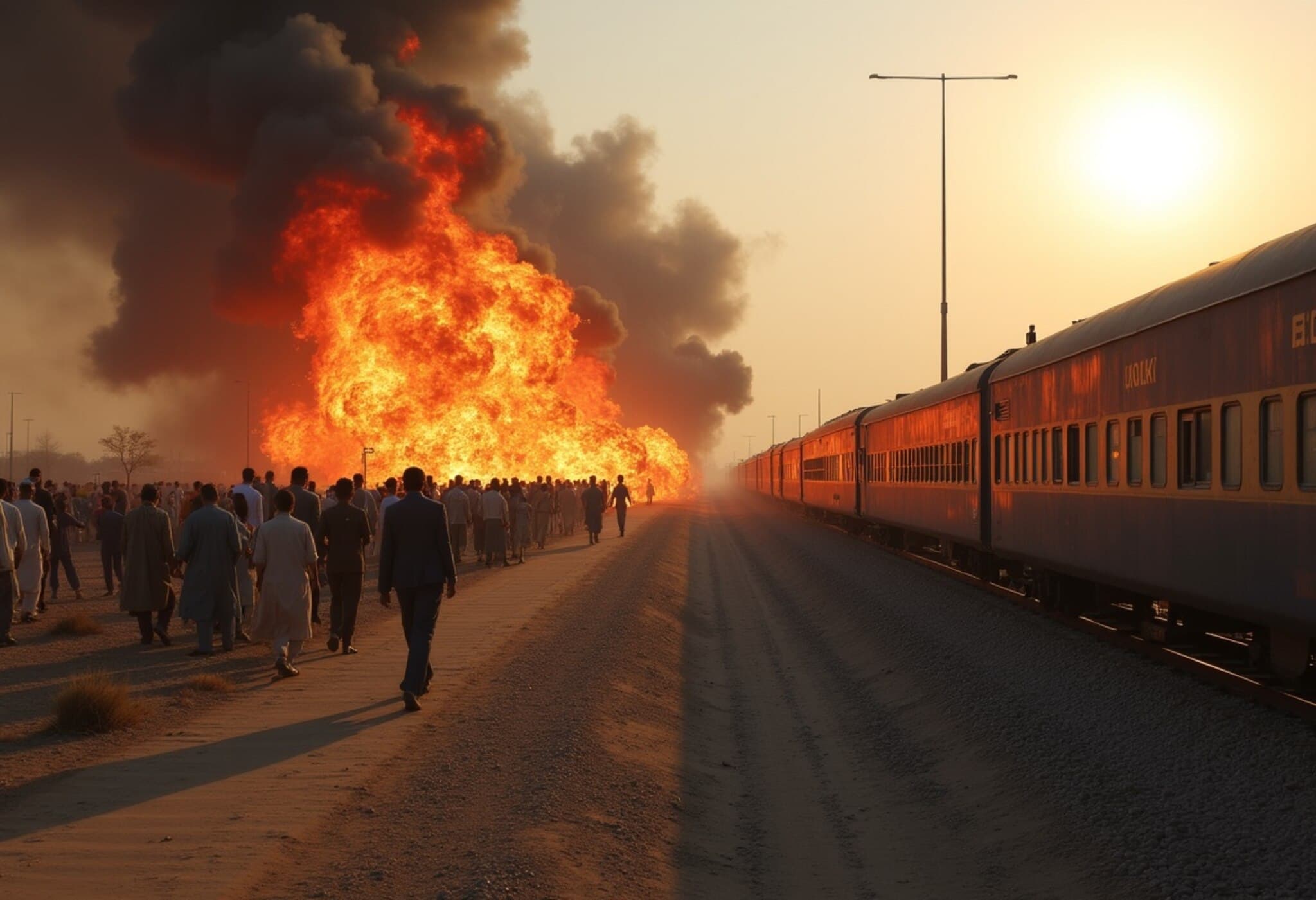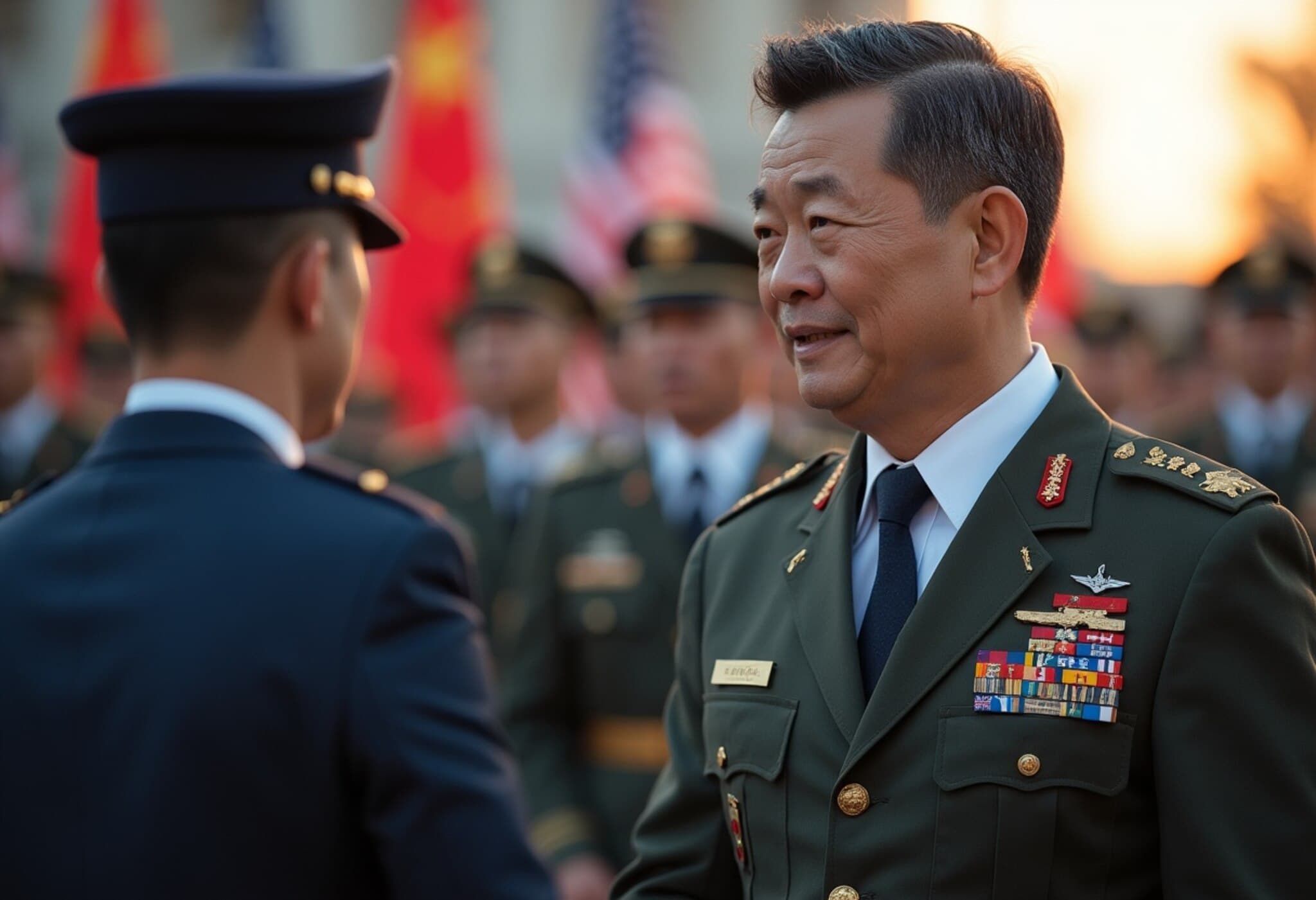Balochistan’s Quest for Independence Intensifies with 'Operation Baam'
Amid escalating tensions in the troubled southwestern province of Pakistan, the Baloch National Movement (BNM) has unequivocally stated that Balochistan will never be part of Pakistan. This powerful declaration comes in the wake of a coordinated militant offensive dubbed "Operation Baam," orchestrated by the Baloch Liberation Front (BLF), targeting Pakistan's military installations across key districts including Panjgur, Surab, Kech, and Kharan.
Exclusive Interview: BNM’s Vision and Historical Roots
Qazi Dad Mohammad Rehan, the information secretary of the Baloch National Movement, shared insights in an exclusive interview, framing Operation Baam as not merely armed rebellion but a strategic awakening of Baloch self-determination. According to Rehan, the operation, launched late Tuesday night, symbolizes the "dawn" of a new era, reflecting the readiness of Baloch people to actively dismantle Pakistan’s military presence and assert governance over their land.
“Operation Baam shows that the Baloch people are not prepared to remain subjugated any longer,” Rehan explained. “We have moved beyond passive resistance to an organised, synchronized campaign that demands global attention.”
He further challenged the Pakistani state’s narrative that independence would plunge Balochistan into chaos, insisting instead that the province possesses the unity, leadership, and vision necessary for self-governance.
Rejecting Pakistan’s Political Framework
Distinctively, the BNM stands apart from other nationalist factions by openly rejecting participation in Pakistan’s parliamentary system. Rehan emphasized, “We are the first party to boycott the Pakistani parliament. Our struggle extends beyond token autonomy—it is a fight for complete independence.”
Tracing the movement’s origins back to the immediate aftermath of Balochistan’s contested annexation in 1948, he noted the shift from tribal-led resistance to a broader people's movement energized by younger generations proficient in guerrilla warfare and modern communication technologies.
Impact of Economic Exploitation and CPEC Critique
Beyond the battlefield, economic grievances simmer prominently. Rehan condemned initiatives like the China-Pakistan Economic Corridor (CPEC), alleging that despite large investments, the Baloch populace remains marginalized, poor, and stripped of their natural resources. “Billions have been funneled into Balochistan, yet it is the Baloch people who bear the brunt of poverty and dispossession,” he stated firmly.
This economic disenfranchisement feeds into the broader narrative of systemic exploitation and fuels demands for sovereignty, as many Baloch perceive themselves to be caretakers rather than beneficiaries of their land’s wealth.
Operation Baam: A Coordinated Campaign of Resistance
The BLF’s "Operation Baam" represents a carefully executed series of attacks—at least 17 across military and governmental targets—aiming to undermine Pakistan's hold on Balochistan. The offensive spanned vital districts, crippling communication infrastructures and damaging administrative buildings.
Major Gwahram Baloch, spokesperson for the BLF, highlighted the operation as a demonstration of their capacity to execute synchronized strikes over a broad geographic expanse, stretching from the coastal Makran region to the mountainous Koh-e-Suleman ranges.
Security forces have initiated extensive search and counter-insurgency operations, with communication blackouts reported in some areas, reflecting the ongoing volatility.
Contextualizing the Baloch Insurgency
This latest chapter in Balochistan's decades-long insurgency shines a light on a complex interplay of ethnic identity, resource control, and geopolitical maneuvering. Strategically located and rich in minerals, the province's unrest carries implications not only for Pakistan’s internal security but also for regional dynamics, including China’s Belt and Road initiatives.
American analysts and experts underscore the importance of understanding the insurgency beyond terrorism labels, advocating for nuanced engagement that recognizes Baloch grievances within broader human rights and economic justice frameworks.
Looking Ahead: The Global Dimension
Rehan’s appeal to the international community underscores a pivotal question: how will global powers respond to Balochistan’s bid for self-determination amid competing strategic interests? The struggle’s characterization as "just and inevitable" challenges policymakers to balance sovereignty concerns with regional stability.
Key Takeaways:
- Balochistan’s independence movement is evolving from tribal-led rebellion to organized, youth-driven insurgency with modern tactics.
- The rejection of Pakistan’s political system marks a radical departure by BNM, emphasizing full sovereignty over autonomy.
- Economic exploitation, particularly linked to CPEC, remains a central grievance fueling unrest.
- "Operation Baam" illustrates coordinated and widespread militant capabilities challenging Pakistan’s military stronghold.
- The international community faces pressing challenges balancing geopolitical interests and supporting human rights.
Editor’s Note
As Balochistan re-enters global headlines with heightened militancy and assertive political claims, it is critical to contextualize this enduring conflict within the broader tapestry of ethnic self-determination movements worldwide. The interplay of historical grievances, geopolitical stakes, and economic disenfranchisement provides rich terrain for informed discourse. Observers and policymakers alike should interrogate prevailing narratives, recognizing that Balochistan’s fight extends beyond violence—it seeks a reimagining of identity, governance, and justice on the margins of South Asia.



















